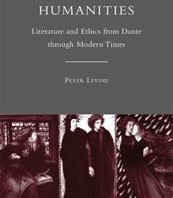- Facebook446
- Total 446
In Joseph Roth’s finely wrought novel The Redetsky March (1932), a simple and good-hearted peasant orderly tries to make a huge financial sacrifice to help his boss, Lieutenant Trotta. The feckless Trotta is badly in debt, and the orderly, Onufrij, has buried some savings under a willow tree. Onufrij has already appeared in the novel many times by this point, but always as a cipher. Now suddenly we see things from his perspective as he walks home (fearfully and yet excitedly), tried to remember which one is his left hand so that he can identify the location where he buried his money, digs it up, and uses it as collateral to obtain a loan from the local Jewish lender.
Apparently, cheap novels that were popular among Austro-Hungarian officers in Trotta’s day “teamed with poignant orderlies, peasant boys with hearts of gold.” Because his actual servant is acting like a literary cliché, Trotta disbelieves and callously rejects the help. He tells Onufrij that it is forbidden to accept a loan from a subordinate and dismisses him curtly. Trotta “had no literary taste, and whenever he heard the word literature he could think of nothing but Theodor Körner’s drama Zriny and that was all, but he had always felt a dull resentment toward the melancholy gentleness of those booklets and their golden characters.” Thus he understands the offer from Onufrij as a fake episode from an unbelievable book. Trotta “wasn’t experienced enough to know that uncouth peasant boys with noble hearts exist in real life and that a lot of truths about the living world are recorded in bad books; they are just badly written.”
Trotta can be compared to two other characters who have problematic relationships with clichés. In Dante’s Divine Comedy, Francesca da Rimini utters a speech that consists almost entirely of slightly garbled quotations from popular medieval romantic literature. She justifies her actions with these clichés and avoids any mention of her own sin. It becomes evident that she never really loved her lover, Paolo, but was only in love with the cliché of being a doomed adulteress. Like The Redetsky March, the Inferno is a beautiful and original construction in which clichés have a deliberate place.
Flaubert’s Madame Bovary (living more than five centuries after Francesca) also quotes incessantly from popular romantic literature and thereby avoids having to see things from the perspective of her victims, notably her husband and children. Flaubert italicizes her clichés to draw attention to them. He uses his own brilliant and acidly original prose to describe a person who can only think in clichés.
Even though Francesca and Emma Bovary quote statements that are literally true, they rely on stock phrases instead of seriously thinking for themselves. They love what they would call “literature,” but they reduce it to a string of clichés.
Trotta is in some ways their opposite and in some ways similar. He despises “literature” but knows some clichés that popular books contain and uses them to avoid reality. His method of avoidance is to doubt anything that is a literary cliché, whereas Emma Bovary and Francesca da Rimini believe them all.
Although Dante and Flaubert were making different points from Roth about clichés, I think both perspectives have some value. Certain cultural movements—notably, the Romanticism of ca. 1800 and the High Modernism of ca. 1900—have prized originality and have scorned cliché as one of the worst aesthetic failings. Indeed, they have defined “literature” as writing free of cliché at the level of style, plot and character, or theme. These movements have enriched our store of ideals, but they have been overly dismissive of the wisdom embodied in tradition. If you respect the accumulated experience of people who have come before you, you may reasonably assume that many truths are clichés and that many clichés are true. To scorn cliché can mean treating one’s own aesthetic originality as more important than the pursuit of moral truth.
Thus I would not try to delete statements from my list of moral beliefs because they have been made many times before or have been expressed in a simple and unoriginal fashion. I would even be inclined to consider our culture’s store of moral clichés as a set of likely truths. Roth was right: “a lot of truths about the living world are … just badly written.” Situations repeat, and what needs to be said has often been said many times before.
But the risk is that a stock phrase can prevent a person from grasping the concrete reality of the situation at hand. I’d propose two remedies for that problem. First, it is worth recognizing which of our moral commitments, even if they are fully persuasive and valid, are also clichés in the sense that they are standardized and prefabricated phrases. Those commitments deserve special scrutiny.
Second, it is worth attending to the ways that all of our various moral commitments fit together. Each cliché may be true, but when it is juxtaposed with other general statements, it always turns out to be only partly true. Life is full of tradeoffs and tensions. Even if the components of my overall worldview are mostly clichés, the whole structure of moral ideas that emerges from my best thinking about my own circumstances is original–just because I am my own person.
Sources: Joseph Roth, The Radetsky March, translated by Joachim Neugroschel, Part II, chapter 17; my article “Why Dante Damned Francesca da Rimini,” Philosophy & Literature, vol. 23 (October, 1999), pp. 334-350. See also on the moral peril of cliché and what to do about it; and on the moral dangers of cliché.
